Disclosure: This article may contain affiliate links. If you decide to make a purchase, I may make a small commission at no extra cost to you.
It’s been quite a long time since I shared my diet on this blog, so I thought I’d give an update. I also don’t usually do these kinds of posts because I’m not sure if people are interested and my diet doesn’t really change a whole lot either. I mean, aside from when I became a vegetarian and then later a vegan, things have mostly stayed the same.
When I started eating a strict CR diet in 2005, I reduced my calorie intake to about 1550 k/cal per day for six years until I decided to increase my calorie intake to gain a little weight back.
I maintained my CR diet eating about 1700-1800 k/cal per day after that, but in the last few years, I’ve noticed that I’m able to eat fewer calories without losing a significant amount of weight. My metabolism seems to have slowed a lot, allowing me to eat as few as 1500 k/cal and maintain a BMI of about 18.5.
I don’t measure my food every day, but because my diet doesn’t really change from day to day, my calorie intake usually averages around 1500 k/cal when I average it out over the week (some days I eat only 1300 k/cal). I’ve carefully measured and tracked my food intake over a two week period to determine this.
What my diet looks like in 2019
Breakfast
- Spearmint tea (2 tea bags)
- Wholemeal bread
- Tesco vegetarian Mexican spicy burger
- One avocado
- One bell pepper
- Raw spinach
- Spring onions (scallions)
- Green tea with turmeric and ginger
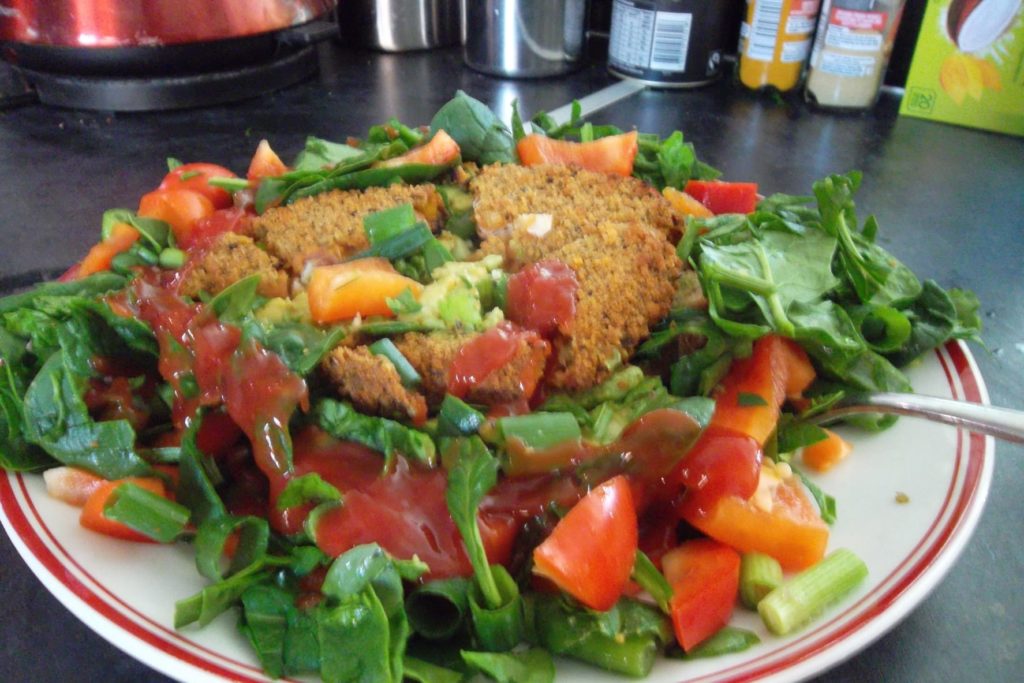
Lunch
- Quaker rolled oats
- One banana
- Frozen blueberries
- Almond milk
- Lindt dark chocolate
- Raisins
- Green tea with turmeric and ginger
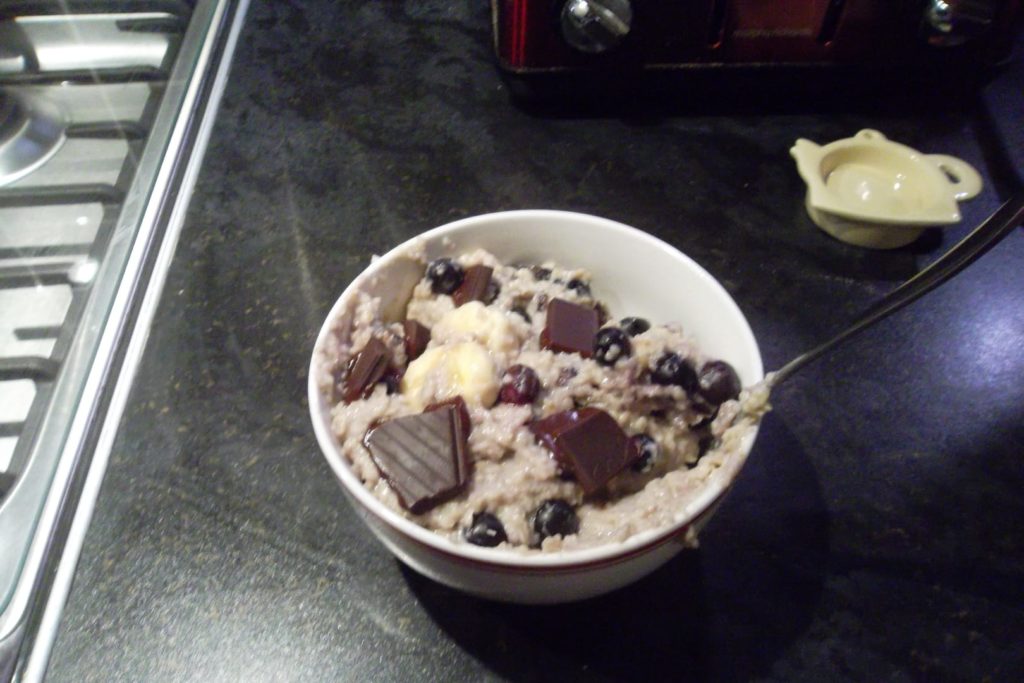
Dinner
- Tesco mixed frozen vegetables (broccoli, peas, carrots, bell peppers, corn)
- Sweet potato
- Extra virgin olive oil
- Green and blacks hot chocolate with soy milk (sometimes almond milk)
- Green tea with turmeric and ginger
- Red apple

Some days I will swap out one of these meals and have baked beans, mainly for convenience (no sugar or salt) with olive oil and sweet potato falafels. In the spring and summer, I’ll also eat a bit more fruit such as mangos, pineapple, strawberries, etc. I also sometimes eat kale instead of spinach.
Notes:
If you like pictures of food, I’ll update with photos very soon.
CRON-O-METER does not show an accurate reading of micronutrient intake because there is no data for multiple foods I’ve listed above. Choosing non-branded or other brands results in meeting 100% of RDA for all nutrients and amino acids with the exception of zinc and selenium.
What my supplement regimen looks like in 2019
When I first started my CR diet I was taking a lot of supplements, but over the last few years, I’ve cut back a lot. I now take just a few different supplements due to the risk of developing deficiencies on a vegan diet and a few that I find useful to target a specific problem. I think supporting the immune system is important on a CR diet.
Allicin Max – Allicin is one of the main active compounds which is created when garlic is crushed and it’s also thought to be responsible for many of the garlic’s health benefits. Although I like garlic very much, and I do eat it, supplements can provide a lot more allicin without smelling so bad.
I usually take two garlic capsules per day and sometimes increase to four a day when needed. Since I discovered allicin max and other garlic supplements which contain allisure, I’ve not really been properly ill with a stomach bug in over 10 years. If I do feel something coming on, I will take 10 capsules, 2-3 times a day, for maybe a day or two and then the symptoms will completely disappear (they usually resolve within hours).
At this point, I’m sure it works because it’s never failed me once (eating raw garlic did not have the same effect for me). I highly recommend keeping some allicin around just in case!
I normally take the garlic capsules with breakfast and dinner as it can help reduce glucose levels.
Beta Glucan and AHCC – I take one to two capsules a day of beta-glucan derived from yeast. I also keep a bottle of AHCC here in case I need it, as it contains alpha-glucans and could be synergistic with beta-glucans (read more here).
Magnesium citrate powder – I usually get enough magnesium in my diet but in 2005 I experienced symptoms of magnesium deficiency which completely resolved after supplementing with magnesium oxide. I now take magnesium citrate powder from now foods as it’s better absorbed and I find that it helps me feel more relaxed.
Vitamin B12 – As a vegan, I believe it’s crucial to be supplementing with vitamin B12 and therefore I take 1000 mcg of a methylcobalamin supplement.
Vitamin D3 – I spent a lot of time working indoors and don’t get a lot of sunlight so I supplement vitamin D. I’ve also found that supplementing helps improve my mood, especially in the winter (and it may have many other benefits as well). I take a vegan vitamin D3 supplement derived from lichens.
Zinc Picolinate – If you’ve followed my blog for the last year or two, you’ll know that I developed a zinc deficiency which resulted in acne and many other symptoms.
I used to consistently supplement with zinc for many years but then for some reason, I stopped and things seemed fine (although I got sick more than normal). It wasn’t until 2016 that I developed acne, got sick constantly with colds/flu, and other clear signs of a deficiency that I began to supplement.
Many vegans don’t realize that zinc is one of the micronutrients that can be difficult to obtain on a vegan diet and can result in poor health if they don’t get enough.
Since supplementing over two years ago, the acne completely stopped, my skin healed much faster (I don’t get breakouts after shaving now either), and I haven’t been sick with a cold or flu at all.
For these reasons, I supplement 50 mg zinc picolinate every other day (initially I was supplementing 100 mg, then 50 mg a day).
D Mannose – I don’t normally take this every day but keep it around just in case. D mannose is highly effective for UTI’s that are caused by E. coli.
Licorice Root extract – Helps improve digestion, speed up healing of the stomach lining and suppress the growth of h. pylori (common bacterial infection in humans).
Omega 3 (algal oil) – I take an omega 3 supplement on and off throughout the year. One concern about consistently supplementing with DHA is the DHA-accelerated aging hypothesis, where DHA is incorporated into the cell membrane and at greater risk of lipid peroxidation. I was made aware of this from SENS Researcher and CR Society member, Michael Rae.
Vegan protein powder – Some days when I don’t consume enough protein, so this helps me boost my protein intake a little.
Selenium – Although selenium is pretty easy to get from brazil nuts, I don’t have them that often and so I supplement selenium when necessary. It’s also, of course, good for immunity.
Vitamin K2 – Vitamin K2 is really important for bone health and difficult to get on a plant-based or vegan diet.
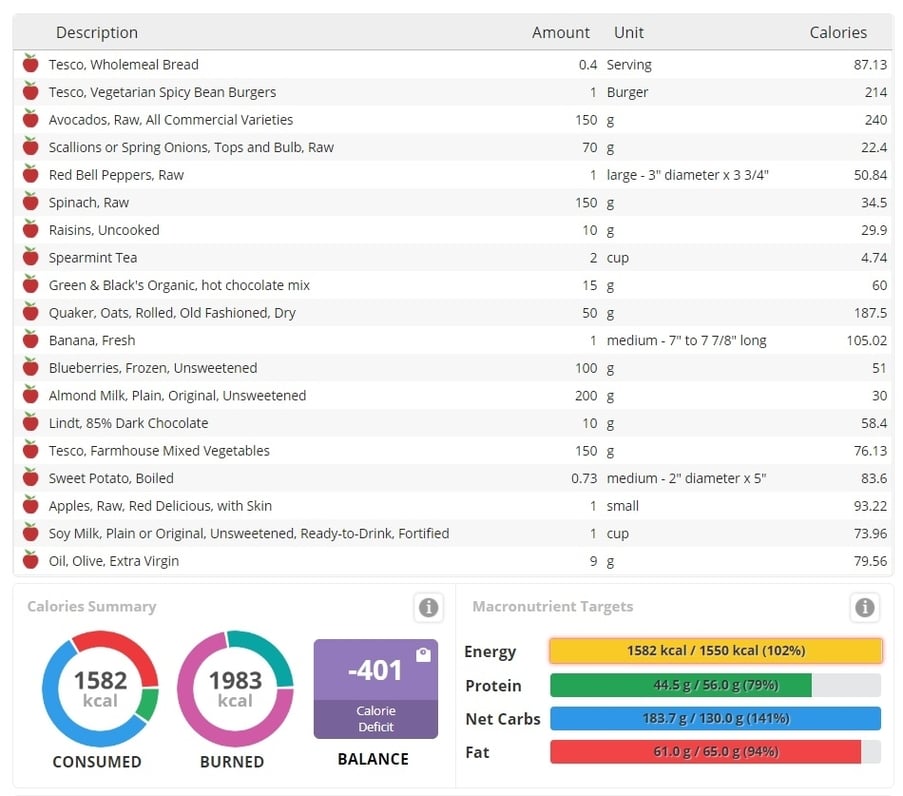
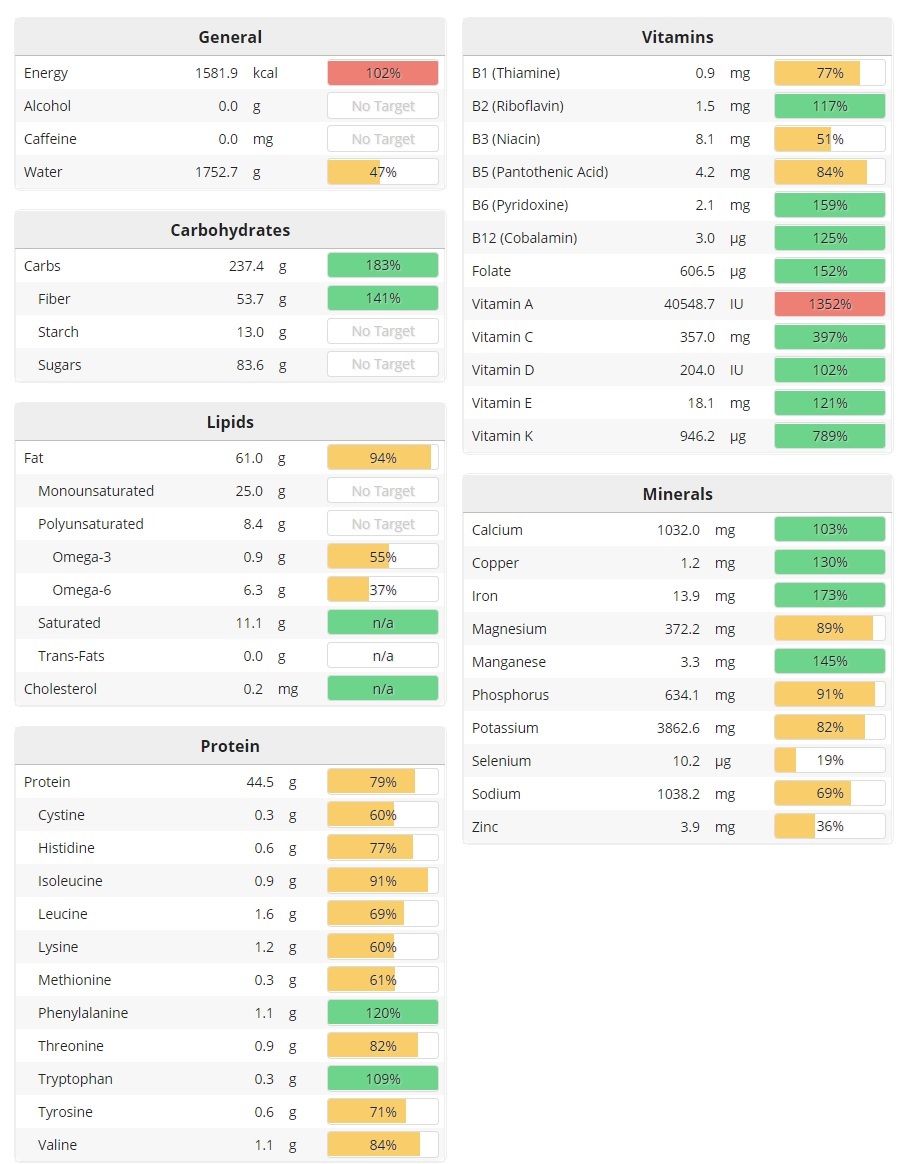
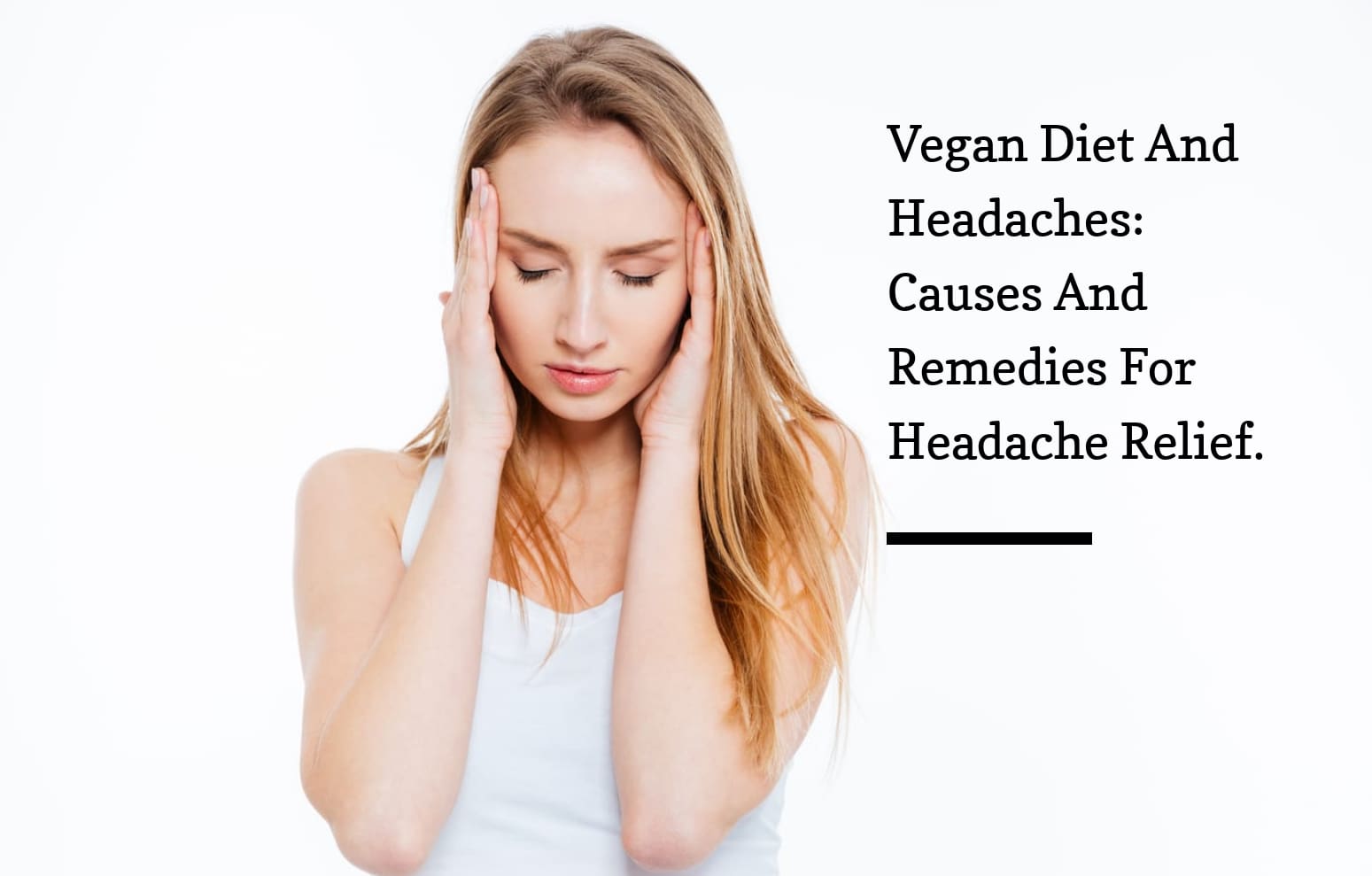
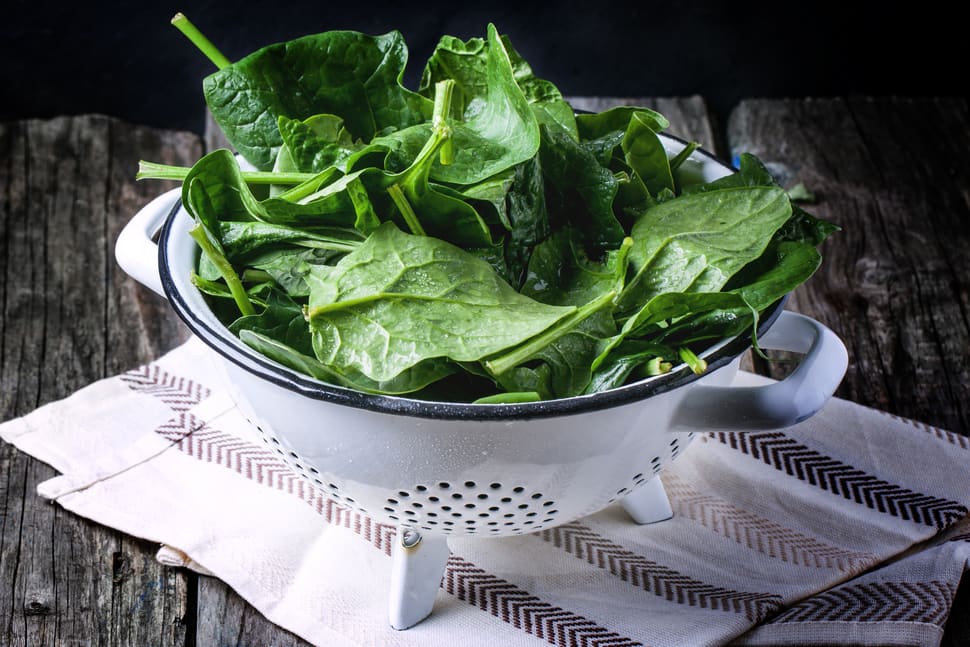



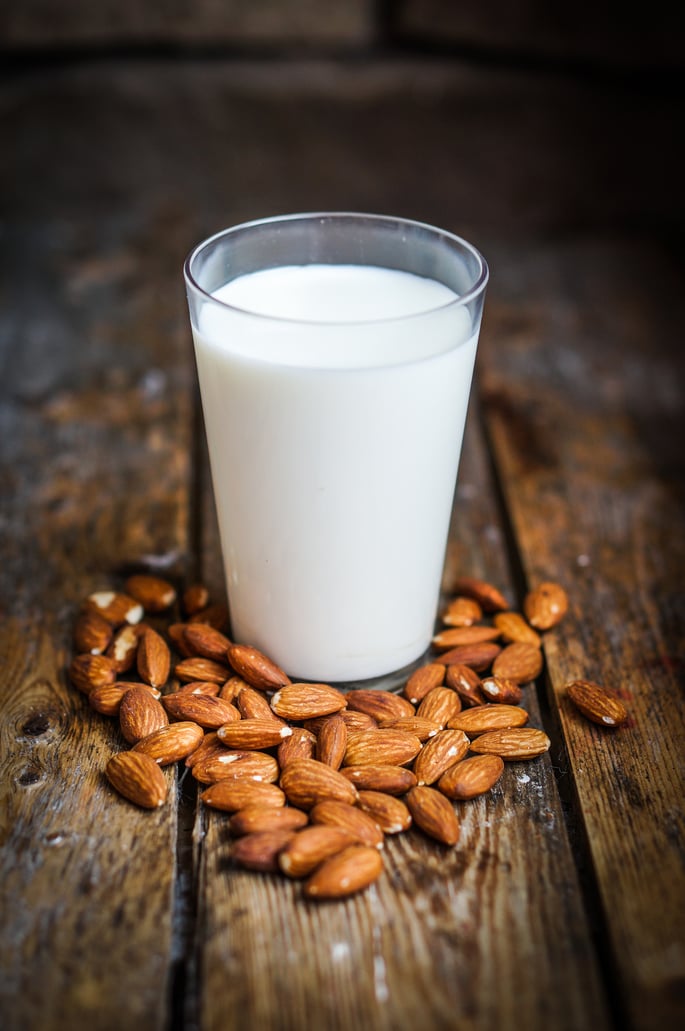



Hi Matt,
I noticed in this post you mentioned a link between DHA and aging. Looking into it, it seems to me as though the link is quite small and may only have a marginal effect, even on CR adherents. Considering that DHA and EPA are important for brain function, not supplementing throughout the year because of a small lifespan gain seems to me like a knee-jerk reaction. Could you enlighten me as to why you think it’s a reasonable idea to cut out the supplements for part of the year?
Also, what dosage do you take of K2? I already get a load of K1 from my diet, but my general aversion to milk leads me to a near-vegan diet so K2 is hard to come by. Looking around online, it seems as though there are no guidelines for K1 and K2 separately, so I’m kind of concerned about an overdose (especially since K1 can already be converted to K2).
Some supplements I take as and when I feel I need them. You’re right, the amount of additional increase in lifespan could be minimal by avoiding DHA. There could be a net benefit for some people, especially if at risk of certain health conditions. For many years I’ve taken it mainly during late autumn to early spring because I used to get symptoms of SAD.
I take K2 every other day which equals to about 45 mcg per day on average.
I wouldn’t be too worried about overdosing at the doses available in many supplements. Very high doses have been used without any toxic effects https://toxnet.nlm.nih.gov/cgi-bin/sis/search/a?dbs+hsdb:@term+@DOCNO+1040
Thanks for the comment 🙂
Hi Matt,
1 of the most interesting articles I have ever read. Can you say something about the exact times you eat. Do you do the fasting/glucose thing? Is your food organic? I am sorry if these answers are somewhere else on your beautiful site but I am new here and could not find them.
Thanks!
Mark
Hey sorry for the delay in responding, Mark! Had a bit of a break. 🙂
Some of the food I eat is organic, but not all of it. I do try to buy organic when possible though, but it can get a bit expensive… and it really depends on the food and the risk from chemicals used.
I often am quite nocturnal where I am awake up until around 4-6 am and then sleep for 8 hours. I eat breakfast within 45 minutes of waking up (I usually have some green tea or spearmint tea first). I tend to eat when I feel hungry, so there is no set time. It would normally be around 5 hours between each big meal.
I have experimented with fasting on and off throughout the years, as well as eating all my meals within a short period of time and then fasting most of the day. Sometimes I will fast for a day (usually on the weekend).
If you mean do I try to keep my glucose levels down… I don’t actively measure it every day, but I have had glucose tests done over the years, and also I had an Hba1C test done (average glucose for approx 3 months) and it was 4.8% which is really low at the bottom of the normal reference range. So I seem to have good glucose control with how designed and structured my meals.
I’ll try to get to your other message a little later or in the morning! 🙂
Hey Matt, I just want to say how much I enjoy your blog it is very inspiring. I would appreciate if you make more posts on what you usually eat. It would be helpful for new vegans or just health conscious individuals to use your meal plan as a guide. Cheers! Mia
Hi Matt,
I’ve read your blog on and off for the last couple of years after finding your posts on Longecity interesting and you seeming a pleasant chap. ( a winning combination, generally.)
I was wondering two things if you’d be kind enough answer. I wondered whether you find there’s a circadian rhythm impact to being awake at night and sleeping in the day? And I also wondered what it is you do for work that permits that wake/sleep cycle? You’d be a good nutritionist! haha.
Be well,
Oliver
Hey!
Thank you for reading! I have a whole bunch of articles to be posted soon, so please check back soon! 😀
I don’t normally find any issues with sleeping during the day and staying awake at night. I don’t know if you read my message on Longecity recently about my insomnia from working nights, but that was unusual for me only due to the fact my sleep got totally messed up due to working another job and accidentally falling asleep and waking up at 2-3 am and then not being able to readjust. I can only seem to move my body clock forward (always been this way) and not backward.
If I’m left to myself, I’ll normally drift towards staying awake until about 4 am.
I have a part-time job raising money for various charities related to heart disease, diabetes, air ambulance, etc. And I am self-employed. 🙂
Thank you so much, Oliver. =)
Matt
100 micrograms methylcobalamin safer – giving same effect on homocyseine and B12/MMA?
Is this level of total protein, leucine and methionine making IGF-1 too low?
10 – 20g flaxseed per day instead of DHA? ALA also has anti A Fib benefit in RCTs where DHA EPA did not
Iodine? Urinary iodine level?
Creatine?
CoQ10?
Strontium and K2 MK4 15 mg for low BMD from CRON?
Lithium 1 mg?
Omega 6 could be 10 – 20g?
Any B1, B2, B3, selenium blood tests results? Could be low
No coffee or decaf?
Hi!
Regarding B1, B2, B3: There are multiple foods listed here that do not contain any data about vitamins, minerals, lipids or amino acids. The foods that are missing data include some of the following: Tesco mixed vegetables, rolled oats, and wholemeal bread.
If you choose generic items (not branded) then the data is usually included and then I meet or exceed the RDA for B1, B2, and B3.
So for example, if I put in Mixed vegetables, corn, green beans, and carrots, plain, cooked from frozen, you’ll see data for B1, B2, B3, amino acids, etc. If you try Tesco mixed vegetables, the nutrition data is not included. The same is true for Tesco wholemeal bread, Quaker oats (see the difference between Quaker and regular oatmeal.)
I also very frequently eat beans (including no added sugar baked beans) and walnuts for ALA. Occasionally I eat Brazil nuts, but I do supplement selenium now.
Protein: as mentioned above, the amino acids are not being reported correctly. However, I do aim to keep IGF-1 low, and so I keep protein intake on the low side. I haven’t done an IGF-1 test yet (something I should probably do.)
I eat walnuts a few times per week for ALA. I don’t like flaxseed much and it doesn’t seem to agree with my stomach either.
I sometimes use a bit of Iodised table salt. I don’t any symptoms associated with a deficiency but it is something I had overlooked for a while. But most of the time I’ve been on CRON I’ve also been taking a multivitamin that included it.
I’m not taking Creatine or CoQ10 – why should I consider taking them?
I’m taking vitamin K2 but not strontium. Regarding bone health, I understand there could be a greater chance of issues associated with bone loss and CR, however, bone quality is likely to better according to some studies. https://www.crsociety.org/topic/11592-cr-bone-health-an-optimistic-review-article/ Nevertheless, it is something I should consider more by doing more.
Never taken Lithium?
Regarding Omega 6, I need to redo the numbers again and get a better report that includes data from all foods.
I don’t like coffee! I just drink green tea.
Thank you so much for the suggestions and feedback!